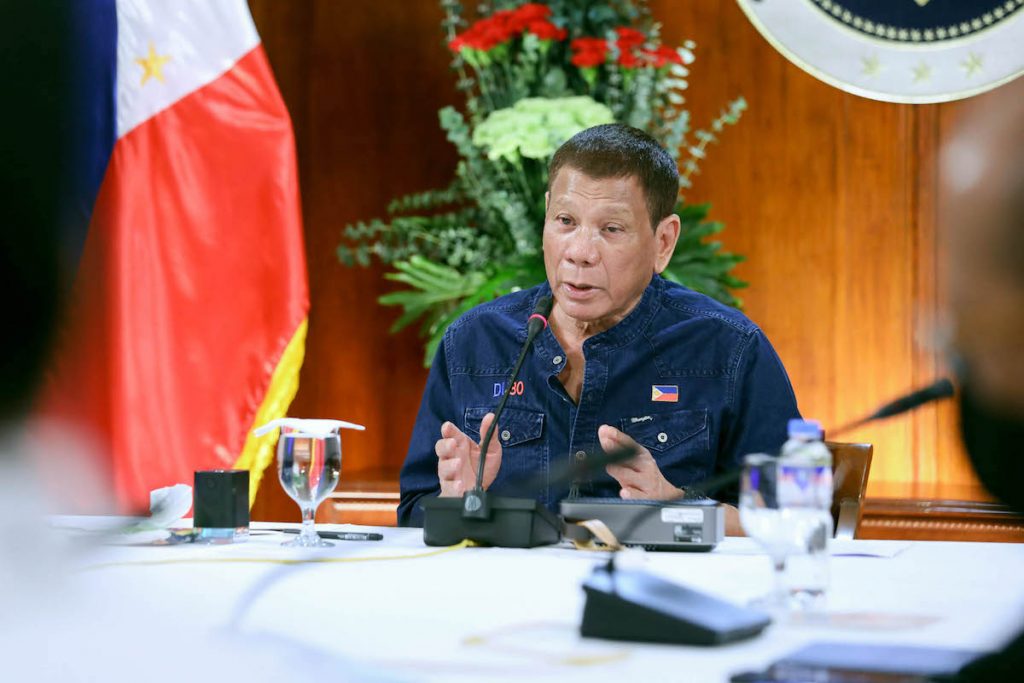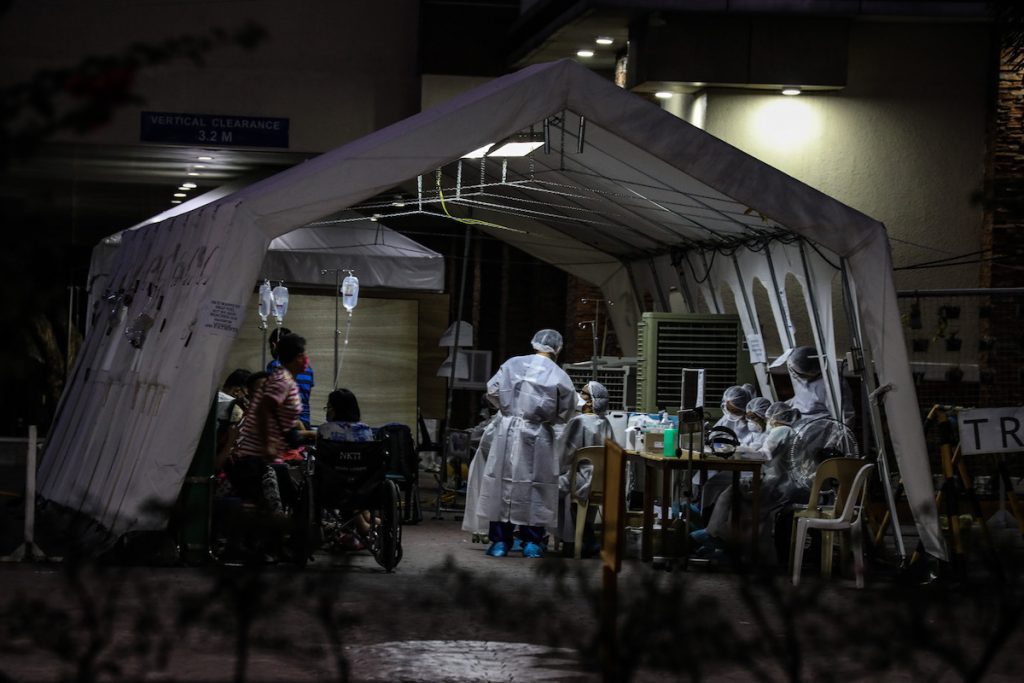Philippine President Rodrigo Duterte’s response to calls for reforms in the government’s pandemic response highlights his intolerance of criticism, his contempt for health workers, and neglect for the economic and social rights of citizens.
His office had initially rejected an appeal by medical colleges and societies for tighter quarantine levels to give the public and private sectors time for a more comprehensive containment strategy against COVID-19.
Hours after, with COVID-19 cases surging past the 100,000 mark, the government blinked.
Duterte placed the national capital region and the nearest provinces of Cavite, Bulacan, and Rizal under a modified enhanced community quarantine for two weeks. Officials laid down a list of don’ts but little by way of responding to needs of front-line workers.
The president’s response highlighted his hot buttons.
Instead of explaining how state officials would implement other reforms urged by medical professionals — systematic testing, contract tracing and isolation; safe transport systems, more human labor policies, and greater social amelioration — Duterte went on another bizarre rant.
He lashed out at doctors for speaking out in public. He equated criticism as a call for revolution. He whined to cover-up the mess of his pandemic response and then blamed the medical profession for not doing anything.
“We are not competent here because we are not doctors,” Duterte said.
That dropped jaws across the country. Duterte had brushed off warnings in March when he appointed retired military generals to be in charge of the COVID-19 containment measures.
Defense Secretary Delfin Lorenzana, the National Task Force Against COVID-19 chief, is a former head of the Army’s special operations command. His vice chair, Interior Secretary Eduardo Año, served as chief of staff of the Armed Forces of the Philippines. The chief policy implementer for the task force is peace process adviser Carlito Galvez Jr., held the same position. The top official for social aid is Social Welfare Secretary Rolando Bautista, a former Army chief.

Shifting blame
Duterte insisted his generals would improve efficiency and lessen corruption.
The doctors’ letter was an indictment of their pandemic management. They cited huge gaps in testing and monitoring, the lack of social safety nets, and failure to provide for workers’ needs as they returned to jobs.
The government pledged to allocate US$407 million in aid to poor families. But the generals centralized target selection, trashing local government lists. Duterte also lied and claimed grassroots officials had already received the funds, making them the targets of constituents’ wrath.
The bulk of distribution happened in a rush at the end of May, after police had arrested more than 30,000 of the capital’s poorest for leaving their homes to seek food and cash aid.
Past the distribution deadline, tens of thousands of desperately poor people, including senior citizens, crushed together, with officials ignoring all health safeguards.
With medical experts validating activists’ criticism of the government, the president chose to gaslight. “You should do the soul-searching, not us,” Duterte told doctors.
In the Filipino language, he lashed out at them for not doing anything, except to complain. That bare-faced lie betrays the depths of this leader’s corrupt governance.
Duterte has refused to fire his health secretary, Francisco Duque III, or other health officials linked to the purchase of alleged over-priced test kits. He fired Dr. Tony Leachon, a task force consultant, for speaking out when task force officials ignored his advice.
Only Duterte would claim doctors’ have “done nothing” with the country surging past 100,000 in the number of COVID-19 patients.
The Philippines has one of the world’s highest attrition rates for medical workers. Experts blame the lack of protective gear and a flawed testing policy that neglected even those directly exposed to COVID-19 patients, focusing only on those showing symptoms of infection.

Breaking point
The medical professionals warned that overwhelmed hospital staff were near breaking point.
The public health sector faces grave personnel and capacity problems. There is only one public doctor for every 31,000 Filipinos.
In the capital’s San Lazaro Hospital, nurses said only three of them and two doctors handled a daily stream of 150 potential COVID-19 patients.
The Department of Health says few have responded to hiring calls. But in San Lazaro, medical staff said national officials ignored their call over the past years to fill up regular staff positions. The current hires are offered only short-term contracts with little social benefits. State nurses and doctors have complained of delayed hazard pay.
The intransigent Duterte brushed off nurses’ plaints, saying they should apply with the Philippine National Police if they want better pay. That shows his contempt for the plight of the public health sector and the citizens they serve.
The president again tried to deflect blame by equating criticism with a conspiracy to overthrow the government.
“Don’t shout about revolution. If you want it, do it now. Let’s kill all people with COVID-19. Is that what you want? We can always end our existence in this manner,” he raged.
But Duterte’s gaslighting has hit a wall. All his curses and threats won’t change the fact that it is the government that kills.
Inday Espina-Varona is an award-winning journalist in the Philippines. She is a recipient of the “Prize for Independence” of the Reporters Without Borders in 2018. The views expressed in this article are the opinions of the author and do not necessarily reflect the editorial stance of LiCAS.news.






